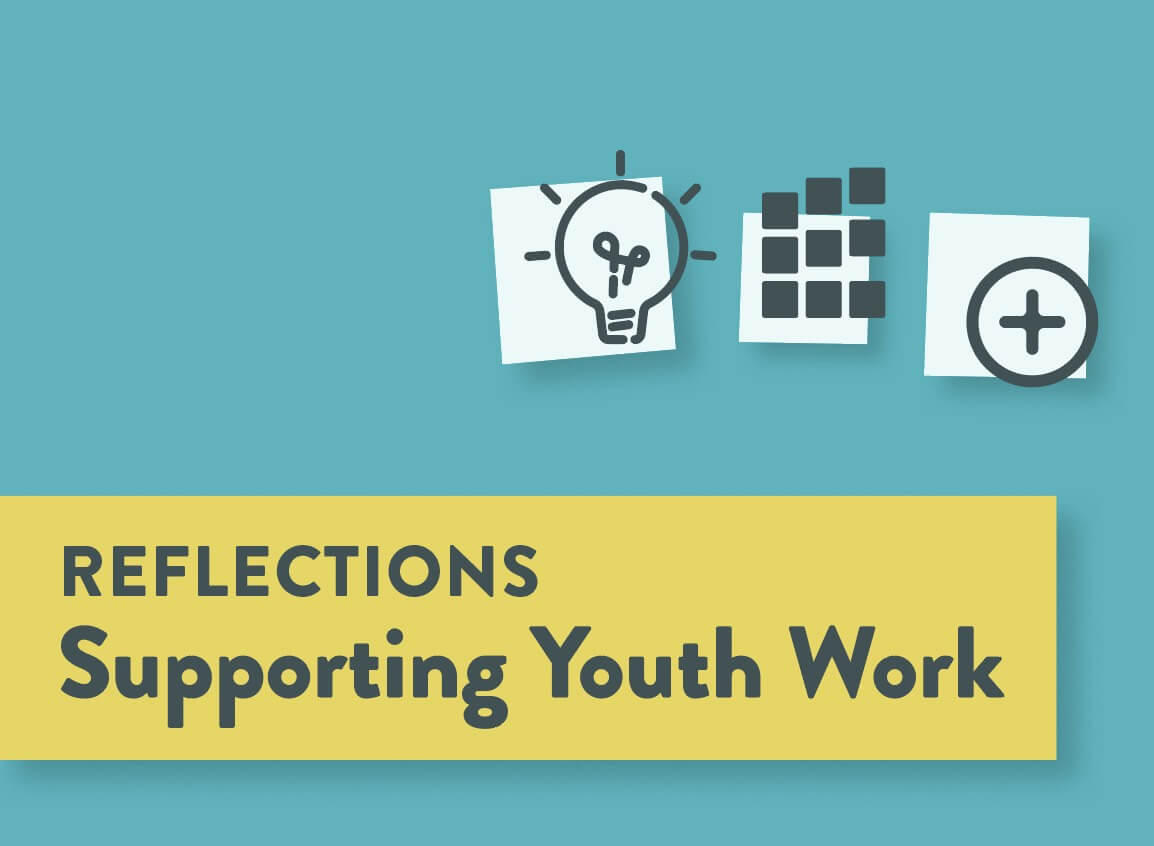Evaluation for Grassroots Organizations
YouthREX offers a continuum of services to support youth wellbeing and meaningfully improve the lives of youth across the province. This blog series explores how YouthREX works in collaboration with partners and stakeholders. It features various organizations who have accessed program supports and capacity building services.
I thought I was well prepared to take on a research manager role within the Windsor Youth Centre, a small grassroots youth-serving organization, with my education and evaluation experience. I knew quite a lot about program evaluation, including what logic models were and what was involved with carrying out process and outcome evaluations. However, I soon realized that the realities of carrying out evaluations in small, under-funded grassroots organizations were not covered in the textbooks, and also differed greatly from large, well-funded organizations, where evaluations occur regularly.
The Windsor Youth Centre (now a program of the Windsor Downtown Mission) supports youth who are at-risk of or experiencing homelessness to meet their most basic needs with a hot meal, snacks, and hygiene products, provided in a friendly environment. Youth can access housing, income, educational and relapse prevention supports, as well as participate in creative activities.
Before I started in the role of research manager, the Centre had only completed informal and sporadic program evaluations. My half-time position was the first role dedicated to program evaluation. The organization was unfamiliar with the general requirements of undertaking evaluations and unaware of what the benefits could be. We received feedback from youth who said the Centre was doing a lot of great things for them and our funders were happy with our numbers; what could program evaluations tell us that we didn’t already know?
As the primary mandate of the Centre is focused on service, our efforts were geared to providing consistency in youth’s lives through regular drop-in programs. Organizational staff were already stretched by limited resources to make the programs’ daily functions, and the need to have the flexibility to be immediately responsive to meeting youth’s needs as they arose meant it was challenging to carry out regular evaluation activities. That’s where YouthREX’s online certificate, Program Evaluation for Youth Wellbeing, came in.
The certificate was a huge support that offered practical information and creative solutions to some of the challenges our Centre was facing. In the first few modules that covered the current context of youth-serving organizations in Ontario, I learned that, in fact, our Centre’s situation was very similar to other grassroots organizations and that the challenges to evaluation were also common. The knowledge presented, along with that shared by others in youth-serving organizations taking the course at the same time, reassured me that our Centre was more the norm than the exception.
Though the certificate, it also became clear how important it was that our Centre’s infrastructure be further developed to include evaluation processes and activities to ensure regular monitoring and record-keeping were being done by staff and administrators. This included taking on a mentoring role of sorts, engaging staff and students in the creation of evaluation activities, collection and analysis of evaluation data, and the dissemination of results. Throughout the certificate, we also started trying to engage more youth from the Centre in the evaluation process. We will continue to strive for this and make it work with our drop-in program approach.
Ultimately, the course helped me to contextualize the realities – challenges and opportunities – of carrying out evaluations in a small grassroots community organization. When funding for my position ended and I transitioned to a volunteer position, I was able to have confidence that the Windsor Youth Centre’s capacity to carry out evaluation had increased significantly, with staff now understanding the value and process of evaluation. This was achieved with substantial support from YouthREX and the online certificate for Program Evaluation for Youth Wellbeing, which I highly recommended to the Centre’s staff and recommend to all youth-serving organization staff.
Michele Gnanamuttu is the former Research Manager for the Windsor Youth Centre, where she carried out quantitative and qualitative program evaluations. Her prior experience includes working with families and youth in non-profit organizations, managing university research projects, and teaching social work courses. Michele earned her BSW from York University, and has a MSW and is completing a PhD from McGill University. Michele is committed to using her research, academic, and non-profit experience to work for positive social change in the communities in which she works and lives. Follow the Windsor Youth Centre on Twitter.

